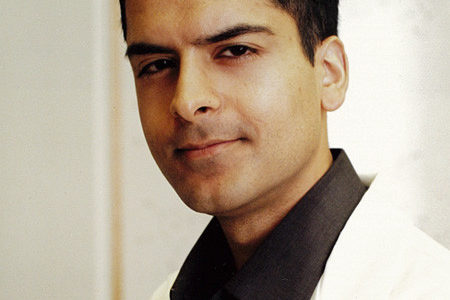With a 2-year, $90,000 grant from FRAXA Research Foundation over 2016-17, Dr. Samie Jaffrey at Weill Medical College of Cornell University explored which FMRP isoform is the best target to treat Fragile X syndrome.
Read more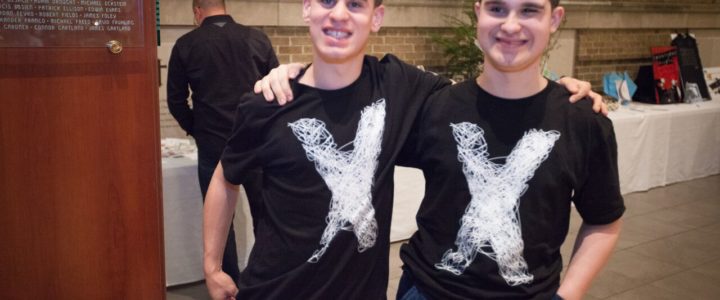
Genes and Gems Fundraiser raises $40,000 for Fragile X Research
On April 8, our fabulous friends of FRAXA in Ohio put on a great show as they held their Genes and Gems fundraiser in Columbus. Over 300 families, friends and supporters of Fragile X research attended. The event included an inspiring presentation by Fragile X physician and researcher, Dr. Craig Erickson, from Cincinnati Children’s Hospital.
Read more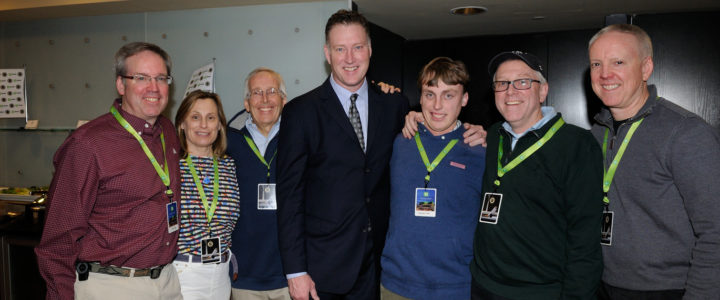
TD Bank invites Friends of FRAXA to Watch the Bruins
Fifty friends of FRAXA enjoyed an amazing night at the TD Garden in Boston on March 30. They gathered to watch the Boston Bruins take on the Dallas Stars. It was a great opportunity for us to unite the greater Boston Fragile X community. We were able to convene and thank some of our local families and introduce them to university and biotech scientists who are working to find a cure for Fragile X. The night was made available by a generous donation of the Garden View Room by TD Bank.
Read more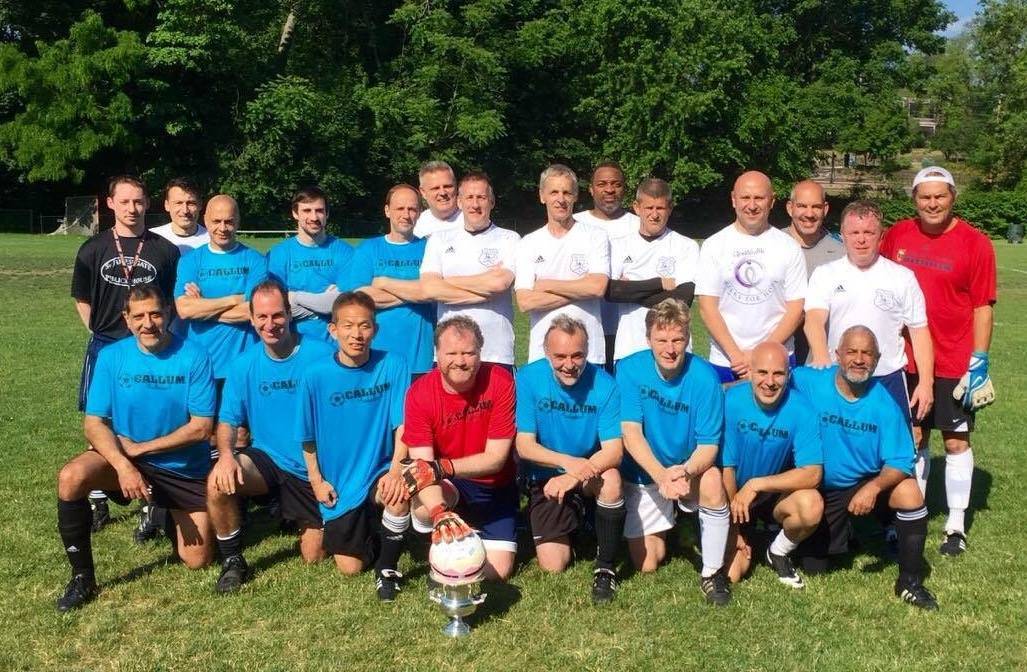
Callum Cup 2017 Raised over $9200 for Fragile X Research
We are tremendously grateful to the Millburn United men’s soccer team, of Millburn, New Jersey, who held the 2017 Callum Cup on Sunday, July 2, 2017. They were honoring Callum Murphy, son of the team goalkeeper at Millburn United. Together with their friends and families, the team raised over $9000 for Fragile X research! This event was made possible by co-hosts Andrew Murphy and Nick Dawes. Donors, thank you all so much!
Read more
Biomarker Discovery and Validation for Fragile X Syndrome
With a $120,000 grant from FRAXA Research Foundation over 2015-2016, Dr. Eric Klann of New York University investigated potential new biomarkers in Fragile X syndrome and how to translate these markers from mouse models to human patients.
Read more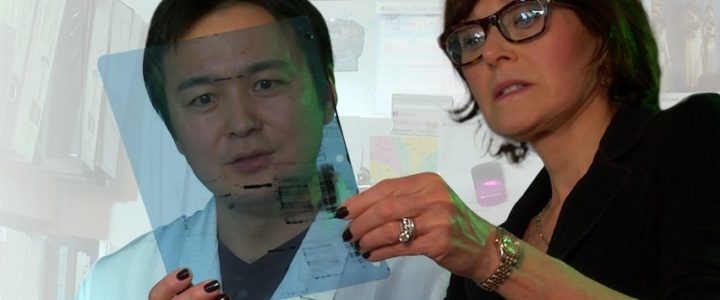
Fragile X Nervous (System) Breakdown
“The occurrence and development of events by chance in a happy or beneficial way.” That’s how Lynne E. Maquat, PhD, describes the process of how her research extended to Fragile X syndrome to better understand it and ultimately find advanced treatments.
Read more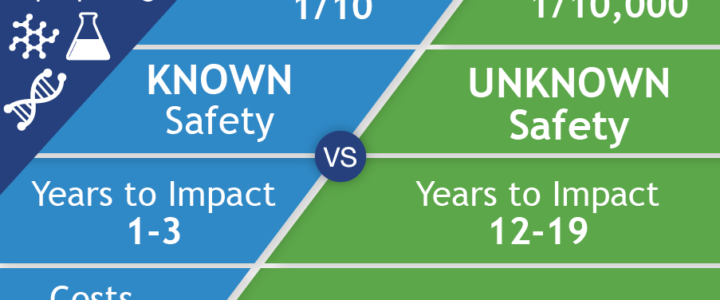
Repurposing Available Drugs to Treat Fragile X Syndrome – FRAXA Initiatives
FRAXA Research Foundation was founded in 1994 to fund biomedical research aimed at finding a cure for Fragile X syndrome and, ultimately, autism. We prioritize translational research with the potential to lead to improved treatments for Fragile X in the near term. Our early efforts involved supporting a great deal of basic neuroscience to understand the cause of Fragile X. By 1996, these efforts had already begun to yield results useful for drug repurposing. To date, FRAXA has funded well over $25 million in research, with over $3 million of that for repurposing existing drugs for Fragile X.
Read more
Fragile X Research Tackles High Anxiety – Peter Vanderklish
Yes, we all know the signs of Fragile X anxiety: Ears begin turning red followed by incessant pacing, heavy breathing, stiffening body, flapping, jumping, avoidance or yelling. Sometimes, it’s the more severe screaming, pinching, scratching, biting and general tearing things up or, worse, the nuclear meltdown.
Read more
PIKE as a Central Regulator of Synaptic Dysfunction in Fragile X Syndrome
With $255,000 from FRAXA Research Foundation, Dr. Suzanne Zukin at Albert Einstein College of Medicine studied signalling pathways in Fragile X syndrome.
Read more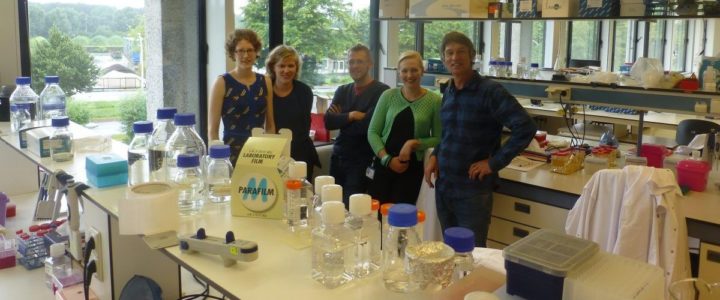
A Kinase Assay as a Biomarker for Fragile X Syndrome
With a $90,000 grant from FRAXA Research Foundation over 2017-2018, Dr. Frank Kooy at the University of Antwerp, Belgium, is investigating whether phosphorylation abnormalities are a suitable biomarker for the Fragile X syndrome.
Read more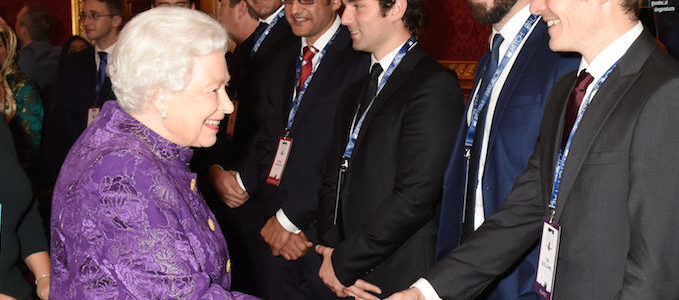
University of Cambridge Startup Healx is Rapidly Identifying Existing Drugs to Help Fragile X Patients
FRAXA awarded $44,000 to Healx in 2017 for drug repurposing to find new treatments for Fragile X syndrome. The results of this study include eight top “hits” which show promise for Fragile X. FRAXA is further investigating these hits.
Read more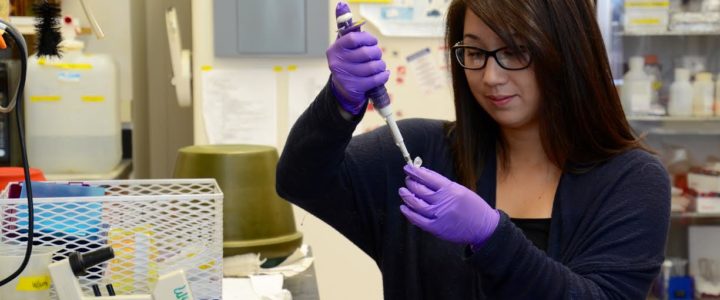
Trial and No Error: Better Outcomes for Clinical Trials in Fragile X Syndrome
Johns Hopkins researcher Christina Timmerman, PhD, searches for a less subjective method to determine if a drug is working in patients with Fragile X syndrome. Many parents of children with Fragile X syndrome were crushed when promising drug trials were unexpectedly stopped a few years ago because subjective behavior-based outcome measures did not justify continuing the trials. The strong feelings linger today. If all goes well with Christina Timmerman’s research, future drug trials may be able to continue with additional metrics for assessment, until there are advanced treatments or even a cure for Fragile X syndrome.
Read more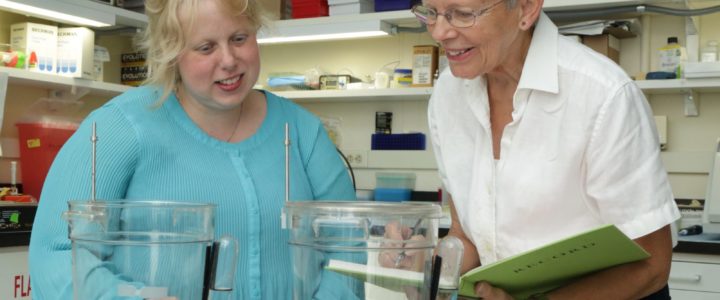
NIH Investigator Carolyn Beebe Smith, PhD, Looks to Improve Sleep in Fragile X Syndrome
Our sons with Fragile X Syndrome typically go to bed early and rise early. Sometimes they jump on us while we are sleeping at 3 a.m., excited to start their day. For heaven’s sake, why? The answer may come from Carolyn Beebe Smith, PhD, senior investigator, Section on Neuroadaptation and Protein Metabolism, National Institute of Mental Health, National Institutes of Health, Bethesda, Maryland. She is studying why children, in particularly boys, with FXS have problems sleeping.
Read more
The New York Times, “Medical Charities Once Advised on Coping With a Disease. Now They Try to Cure It”
Propelled by genome sequencing and social media, thousands of charities have sprung up to finance, coordinate and oversee research for cures. Katie Clapp and her son, Andy, who has Fragile X, a disease that causes intellectual disability, with a therapy horse at Gateway Farm in Merrimac, Mass. Ms. Clapp helped form a group that has spent millions on research for a cure.
Read more
New Fragile X Clinical Trial for Children Launching in June 2017
Rush University Medical Center Professor Elizabeth M. Berry-Kravis, MD, PhD, has launched and is recruiting participants for a large-scale clinical trial to study effects of AFQ056, an mGluR5 blocker, on learning in young children.
Read more
Mark Bear’s Goal: Disease-Modifying Treatments for Fragile X
Researcher Mark Bear, PhD, Picower Professor of Neuroscience, sees success developing disease-modifying treatments for Fragile X syndrome and other developmental brain disorders. Finally, hope. And it comes from his lab, The Picower Institute for Learning and Memory, Department of Brain and Cognitive Sciences, Massachusetts Institute of Technology.
Read more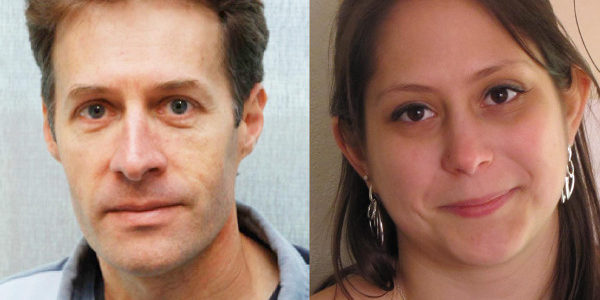
Function of FMRP and Test of a Novel Therapeutic Approach in a Fragile X Mouse Model
With a 2015-2016 $90,000 grant from FRAXA Research Foundation, Dr. Herve Moine and Dr. Andrea Geoffroy aim to uncover the exact role of FMRP and to test a novel possible means to correct for FMRP absence in the mouse model of Fragile X syndrome.
Read more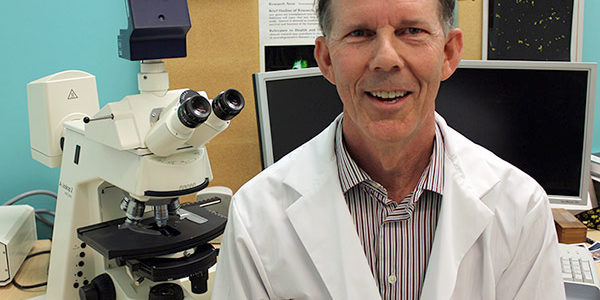
Correcting Defects in Astrocyte Signaling in Fragile X Syndrome
With a $90,000 grant from the FRAXA Research Foundation from 2015-2016, Dr. Laurie Doering and Dr. Angela Scott at McMasters University studied astrocytes in Fragile X. Astrocytes, brain cells which support neurons, do not transmit signals. Several treatment strategies for Fragile X have been proposed based on correction of “astrocyte phenotypes”.
Read more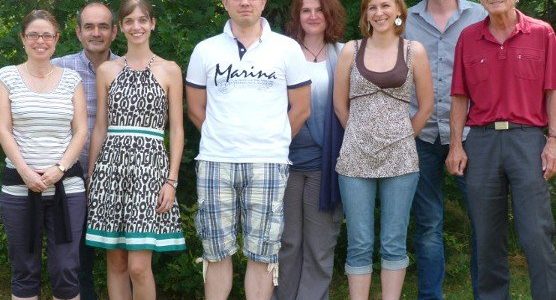
Sensory Hypersensibility in Fragile X Syndrome and BK Channel Openers
With $366,100 in grants from FRAXA Research Foundation, these investigators at the University of Orleans studied sensory abnormalities in Fragile X mice and test the ability of a class of drugs, BK channel openers, to rescue these abnormalities.
Read more
Fragile X Mutant Mouse Models
With $375,000 in grants from the FRAXA Research Foundation since 2009, Dr. David Nelson has developed an impressive array of advanced mouse models of Fragile X, at Baylor College of Medicine. These models are available to investigators worldwide on request. This resource has been essential for a broad, rapid distribution of Fragile X and related gene mouse models and has increased the pace of Fragile X research.
Read more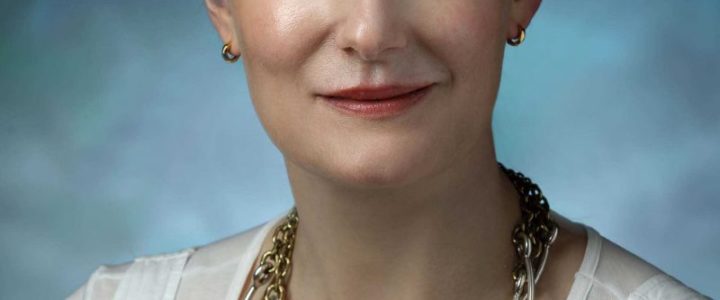
MicroRNAs as Biomarkers in Fragile X Syndrome
With a $90,000 grant from FRAXA Research Foundation in 2015-2016, Dr. Mollie Meffert and Dr. Christina Timmerman at Johns Hopkins University studied groups of small RNAs, known as microRNAs, which are greatly decreased in brain tissue of Fragile X mice vs. normal controls.
Read more
Repurposing Drugs to Dampen Hyperactive Nonsense-Mediated Decay in Fragile X Syndrome
With a $90,000 grant from the FRAXA Research Foundation, Dr. Lynne Maquat and Dr. Tatsuaki Kurosaki will investigate nonsense-mediated mRNA decay (NMD) in Fragile X. NMD is a “housekeeping” process that cells use to prevent faulty proteins from being made. But there is too much of it in Fragile X syndrome. There are already available drugs that suppress NMD – including caffeine.
Read more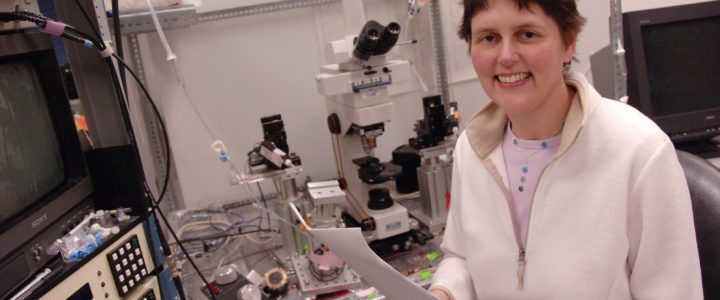
Kimberly Huber, PhD, Explores Hyperexcitability in Fragile X Syndrome
Ever wonder why your child with Fragile X suddenly screams for no apparent reason or jumps and flaps uncontrollably seemingly for hours? You got it: hyperexcitability. But what exactly causes it? And what can fix it? Kimberly Huber, PhD, is working long and hard in her lab to answer those questions. Dr. Huber, professor, Neuroscience, UT Southwestern Medical Center, is seeking to understand how FMRP regulates connections between brain cells, called synapses, and the function of brain circuits, which are several connected brain cells.
Read more
Altered Sleep in Fragile X Syndrome: Basis for a Potential Therapeutic Target
With a $90,000 grant from FRAXA Research Foundation over 2016-2018, Dr. Carolyn B. Smith and Dr. Rache Sare at the National Institute of Mental Health investigated the basis of sleep problems in Fragile X syndrome.
Read more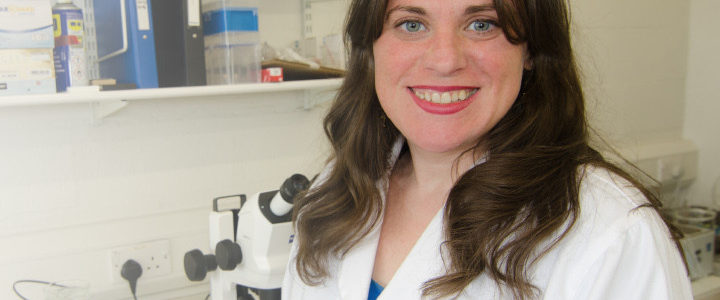
Enhancement of NMDA Receptor Signaling for the Treatment of Fragile X Syndrome
FRAXA Research Foundation funded a 2016-2017 Fellowship for Dr. Stephanie Barnes in the University of Edinburgh lab of Dr. Emily Osterweil. With this $90,000 award, the team is investigating NMDA signaling in fragile X syndrome mice.
Read more
